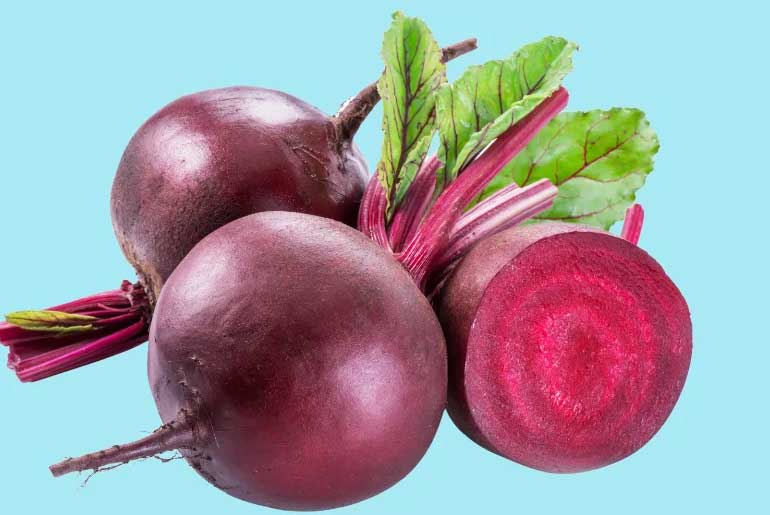Beetroot has been shown to help control blood sugar levels due to its high fiber content and antioxidant properties. The fiber helps slow down the absorption of sugar in the bloodstream, preventing rapid spikes. Additionally, beetroot contains compounds like betalains, which have anti-inflammatory and antioxidant effects, potentially improving insulin sensitivity. Some studies suggest that beetroot may also help reduce blood pressure, which is often associated with diabetes. Consuming beetroot in moderation as part of a balanced diet can be a helpful strategy for managing blood sugar levels.
Beetroot, known for its vibrant color and various health benefits, is increasingly being recognized for its potential to help control blood sugar levels, particularly for individuals with diabetes. This root vegetable is rich in several nutrients that can support blood sugar management and overall health.
1. Rich in Antioxidants: Beetroot is packed with antioxidants like betalains, which give it its distinct red color. These antioxidants help reduce inflammation and oxidative stress in the body, both of which are linked to the development of diabetes-related complications. By combatting these factors, beetroot can help improve overall metabolic health.
2. High in Fiber: Beetroot is an excellent source of dietary fiber, which plays a key role in regulating blood sugar levels. Fiber slows down the absorption of sugar into the bloodstream, preventing sharp spikes in blood sugar levels after meals. This can be particularly beneficial for people with diabetes in managing glucose levels throughout the day.
3. Nitrates and Insulin Sensitivity: Beetroot contains high levels of nitrates, which are known to improve insulin sensitivity. Insulin sensitivity refers to how effectively the body’s cells respond to insulin, a hormone responsible for regulating blood sugar. Enhanced insulin sensitivity means the body is better able to utilize glucose from the bloodstream, leading to better blood sugar control.
4. Low Glycemic Index: Beetroot has a low glycemic index (GI), which means it causes a slower, more gradual rise in blood sugar levels. Foods with a low GI are beneficial for people with diabetes as they help in maintaining stable blood sugar levels without causing rapid spikes. This makes beetroot a suitable addition to the diet of those managing diabetes.
5. Potential Blood Pressure Benefits: For people with diabetes, managing blood pressure is crucial, as high blood pressure is a common comorbidity. Beetroot’s high nitrate content also helps to lower blood pressure by improving blood flow and relaxing blood vessels, which in turn can reduce the risk of cardiovascular complications often associated with diabetes.
6. Improved Circulation and Reduced Risk of Heart Disease: Diabetes can increase the risk of heart disease due to high blood sugar levels affecting blood vessels. Beetroot’s ability to enhance circulation through improved blood flow may reduce this risk by promoting healthier blood vessels and cardiovascular health.
7. How to Incorporate Beetroot Into the Diet: People with diabetes can enjoy beetroot in various ways. It can be consumed raw in salads, roasted, boiled, or juiced. Incorporating beetroot into meals, whether in smoothies, soups, or as a side dish, is a great way to harness its health benefits. However, it is important to balance beetroot with other nutrient-dense foods for a well-rounded diet.
Beetroot, with its rich antioxidant content, fiber, low glycemic index, and nitrates, can be a valuable addition to a diabetes-friendly diet. It helps regulate blood sugar levels, improve insulin sensitivity, and reduce the risk of cardiovascular issues. Including beetroot in your meals, along with a balanced diet and regular exercise, can play a supportive role in managing diabetes and promoting overall health.
Disclaimer:
The information contained in this article is for educational and informational purposes only and is not intended as a health advice. We would ask you to consult a qualified professional or medical expert to gain additional knowledge before you choose to consume any product or perform any exercise.








